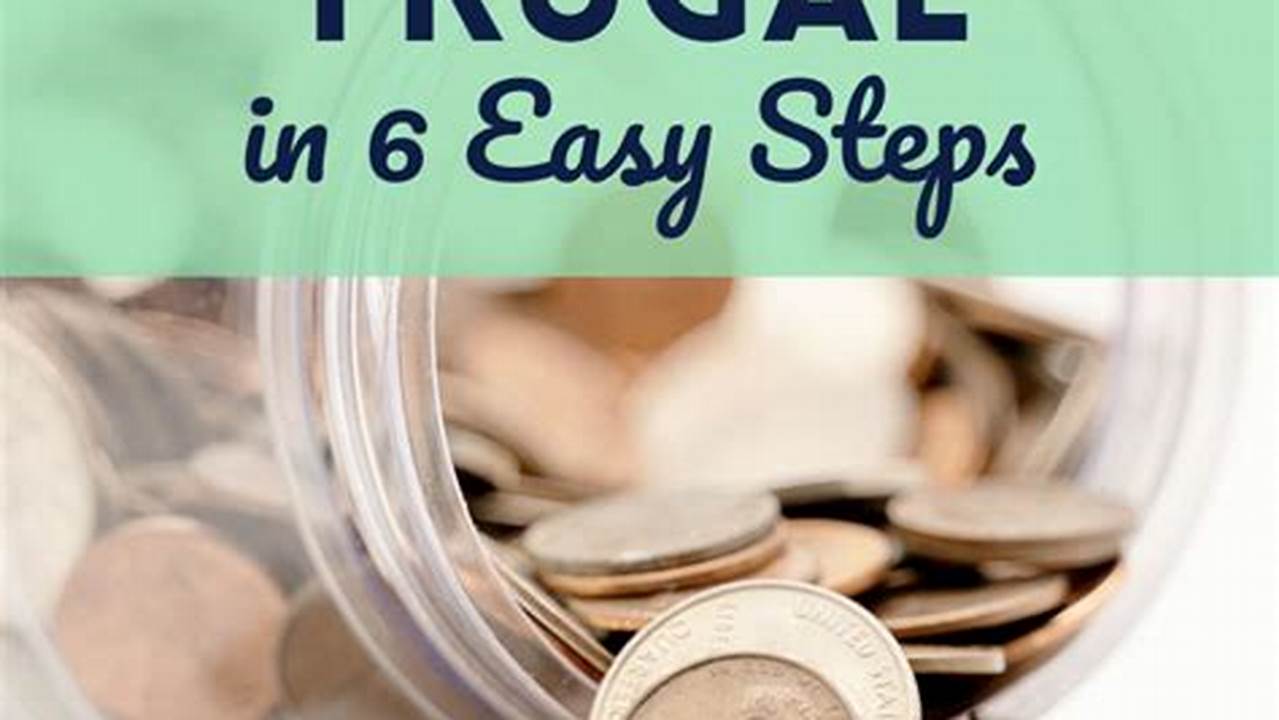
Frugality, the practice of being economical with money, involves managing your expenses and resources wisely. It extends beyond mere penny-pinching; it’s about making thoughtful decisions to maximize your financial well-being. By adopting frugal habits, you can achieve financial stability, reduce stress, and gain a sense of control over your finances.
Frugality has been recognized for centuries as a virtue that fosters self-reliance, discipline, and contentment. In today’s economic climate, it’s more important than ever to embrace frugal principles. By learning how to be frugal, you can navigate financial challenges, build wealth, and secure your financial future.
In the following sections, we’ll explore practical strategies for practicing frugality, including budgeting, saving, mindful spending, and reducing expenses. We’ll also discuss the psychological aspects of frugality and provide tips for overcoming common obstacles.
Frequently Asked Questions About Frugality
This section addresses some common questions and misconceptions about frugality.
Question 1: Is frugality the same as being cheap?
Answer: No, frugality is not about depriving yourself or being miserly. It’s about making wise financial choices and getting the most value for your money. Frugality allows you to live comfortably while achieving your financial goals.
Question 2: Is it possible to be frugal and still enjoy life?
Answer: Yes, absolutely! Frugality is not about sacrificing happiness or fulfillment. It’s about finding creative ways to enjoy life without breaking the bank. By embracing frugal habits, you can free up financial resources to spend on the things that truly matter to you.
Question 3: How can I overcome the psychological barriers to frugality?
Answer: Overcoming psychological barriers requires self-awareness, mindfulness, and a shift in mindset. Identify your triggers for overspending and develop strategies to cope with them. Focus on the long-term benefits of frugality and visualize the financial freedom it can bring.
Question 4: What are some common frugal living tips?
Answer: Create a budget, track your expenses, cook meals at home, reduce unnecessary purchases, negotiate bills, take advantage of free activities, and seek out secondhand goods.
Question 5: How can I teach my children about frugality?
Answer: Involve children in age-appropriate financial discussions, teach them the value of money, encourage them to save and earn money, and model frugal behavior.
Question 6: Is frugality a sustainable lifestyle?
Answer: Yes, frugality is a sustainable lifestyle that can be maintained over the long term. By adopting mindful spending habits and prioritizing your financial goals, you can achieve financial stability and live a fulfilling life.
In conclusion, frugality is a valuable practice that can empower you to take control of your finances, achieve your goals, and live a more fulfilling life. By embracing frugal principles and overcoming common obstacles, you can reap the numerous benefits of this time-honored approach to financial well-being.
Transition to the next article section:
Tips for Practicing Frugality
Embracing frugality requires a conscious effort and the adoption of mindful spending habits. Here are several practical tips to help you get started:
Tip 1: Create a Budget
A budget is a roadmap for your finances. It helps you track your income and expenses, identify areas where you can save, and make informed financial decisions. By creating a budget, you gain control over your money and ensure that it aligns with your financial goals.
Tip 2: Track Your Expenses
Keeping track of your expenses is crucial for understanding your spending patterns. Use a budgeting app, spreadsheet, or simply write down every purchase you make. This process will help you identify unnecessary expenses and areas where you can cut back.
Tip 3: Cook Meals at Home
Dining out can significantly impact your budget. Cooking meals at home is a frugal alternative that allows you to control ingredients, portion sizes, and overall cost. Plan your meals in advance, buy groceries in bulk when possible, and utilize leftovers to reduce food waste.
Tip 4: Reduce Unnecessary Purchases
Before making a purchase, ask yourself if it’s truly necessary or if it’s simply a want. Avoid impulse purchases and take time to research the best deals. Consider purchasing secondhand items, borrowing from friends or libraries, or opting for free entertainment options.
Tip 5: Negotiate Bills
Many bills, such as phone, internet, and utility bills, are negotiable. Contact your service providers and ask for a lower rate or inquire about discounts. You may be surprised at how much you can save by simply asking.
Tip 6: Take Advantage of Free Activities
There are numerous free or low-cost activities available in most communities. Explore parks, attend local events, visit museums on free admission days, and engage in outdoor recreation. By seeking out free activities, you can enjoy yourself without breaking the bank.
Tip 7: Seek Out Secondhand Goods
Buying secondhand is an excellent way to save money on a wide range of items, including clothing, furniture, books, and electronics. Visit thrift stores, consignment shops, and online marketplaces to find gently used items at a fraction of the retail price.
Tip 8: Live Below Your Means
One of the most important principles of frugality is living below your means. Avoid unnecessary debt and aim to save a portion of your income each month. By living within your means, you create a financial cushion and reduce financial stress.
In summary, practicing frugality involves making wise financial choices and adopting mindful spending habits. By following these tips, you can effectively manage your money, achieve your financial goals, and live a more fulfilling life.
Transition to the article’s conclusion:
Conclusion
In this article, we have explored the concept of frugality and its numerous benefits. By understanding how to be frugal with money, individuals can gain control over their finances, achieve their financial goals, and lead more fulfilling lives.
Embracing frugality requires a conscious effort and the adoption of mindful spending habits. Creating a budget, tracking expenses, cooking meals at home, and reducing unnecessary purchases are just a few strategies that can help individuals save money and live more frugally. By living below their means and seeking out secondhand goods, individuals can further enhance their financial well-being.
Frugality is not about deprivation or sacrifice; it’s about making wise financial choices and prioritizing long-term financial goals. By adopting frugal principles, individuals can break free from the cycle of debt and financial stress, build a secure financial future, and achieve true financial freedom.
